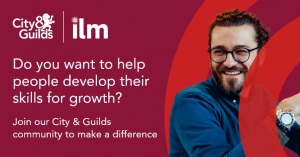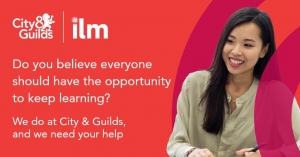Test Owner
Hiring a Business Developer!
Hiring the right Business Developer / Employer Engager can make all the difference for your company's growth and success. But how do you know what to look for? Everyone has their own version of what "good" looks like. Here are some key things to consider when interviewing potential candidates:
- Do they ask a lot of questions?
- Are they actively listening to understand needs and adapting their responses to showcase their strengths?
- Have they done enough research and understand the business?
- Can they confidently talk through their work history and targets, with a real grasp of the numbers?
- Are they a team player with a positive mindset?
It's important to take the time to find the right fit for your team and business. At the National Skills Agency, we specialise in placing a range of key staff including Business Developers and Employer Engagement professionals into training providers and awarding bodies.
If you're interested in learning more, reach out for an informal chat. Let's
get it right together! Spencer@nationalskillsagency.co.uk
020 3953 1984 #BusinessDevelopment #EmployerEngagement
#NationalSkillsAgency
The Surging Growth of EdTech in the UK: National Skills Agency's Vital Role in Fueling Success
In recent years, the United Kingdom has witnessed a seismic shift in its educational landscape, fueled by the rapid advancement of technology. The emergence of EdTech (Educational Technology) has revolutionized learning methodologies, making education more accessible, personalized, and interactive. This transformative wave has not only altered the way students learn but has also brought about an unprecedented growth trajectory for the EdTech industry in the UK.
Several key factors contribute to the burgeoning growth of EdTech in the UK. Firstly, technology in modern society has necessitated an evolution in educational approaches. With an increasing reliance on digital tools, there's a growing demand for innovative, tech-driven solutions that enhance the learning experience. The pandemic further accelerated this trend, prompting a widespread adoption of online learning, thus propelling the EdTech sector to the forefront of education.
Additionally, the UK's robust educational infrastructure and its commitment to fostering innovation have created a conducive environment for EdTech startups and established companies alike. Universities, research institutions, and government initiatives have been instrumental in fostering a culture of innovation and providing the necessary support for EdTech ventures to thrive.
Amidst this dynamic landscape, the National Skills Agency has emerged as a pivotal player, offering specialist recruitment services crucial for the sustained growth of EdTech companies. As a leading recruiter, the National Skills Agency understands the unique requirements of the EdTech sector, comprehensively catering to the recruitment needs across various domains within these companies.
One of the agency's primary roles is facilitating the acquisition of top-tier talent in roles crucial to the success of EdTech firms. From data analytics to product development, sales, marketing, and curriculum design, the National Skills Agency excels in identifying and securing individuals equipped with the specialist skill sets demanded by the industry.
For instance, in the realm of data analytics, where insights gleaned from student interactions drive personalized learning experiences, the agency's expertise in identifying data-savvy professionals is unparalleled. Similarly, in product development, where innovation is paramount, the agency's knack for sourcing visionary minds capable of ideating and executing groundbreaking solutions is a significant asset for EdTech companies.
Moreover, the National Skills Agency's dedicated efforts in connecting qualified individuals with roles in sales, marketing, and curriculum design have been instrumental in fostering the growth of EdTech companies by ensuring a well-rounded team capable of not only creating exceptional products but also effectively bringing them to market.
For those seeking opportunities or talent within the thriving EdTech sector, the National Skills Agency's comprehensive platform offers a gateway. Interested individuals can explore the diverse array of roles available in the EdTech industry through the agency's user-friendly jobs section, connecting aspirations with opportunities that drive innovation and education forward.
To discover more about the National Skills Agency and explore the plethora of roles available in the UK's burgeoning EdTech industry, visit NSA and navigate to the jobs section jobs
In conclusion, the exponential growth of EdTech in the UK is propelled by a confluence of factors, and the National Skills Agency stands as a linchpin in nurturing this growth by facilitating the recruitment of adept professionals across critical domains, ensuring the continued success and innovation within the EdTech ecosystem.
Top 10 tips for successful recruiting
Here are my top 10 tips for successful recruiting:
1. Craft Clear Job Descriptions: Define roles with precise job descriptions outlining responsibilities, required skills, and the company culture to attract suitable candidates.
2. Leverage Diverse Platforms: Utilise multiple channels—job boards, social media, professional networks, specialist recruiters —to reach a wider pool of talent and increase visibility.
3. Strong Employer Branding: Highlight the company's values, mission, and workplace culture to appeal to candidates seeking alignment beyond just a job.
4. Streamline the Selection Process: Design an efficient and swift recruitment process. Avoid lengthy closing dates. If the right candidate appears offer them!
5. Prioritise Diversity and Inclusion: Actively promote diversity in your hiring practices by fostering an inclusive environment and implementing strategies to attract diverse talent.
6. Engage Passive Candidates: Build relationships with potential candidates, even if they're not actively seeking jobs, to create a talent pipeline for future roles.
7. Offer Competitive Salaries and Benefits: Stay in tune with the market to attract and retain top-tier talent.
8. Implement Effective Screening Techniques: Use assessments, case studies, and skill-specific evaluations to gauge candidates' abilities accurately.
9. Promote Employee Referrals: Encourage current employees to refer potential candidates, as they often bring in experienced candidates who align with the company culture.
10. Provide a Positive Candidate Experience: Ensure a smooth and respectful recruitment journey, regardless of the outcome, to maintain a positive image and potentially attract future applicants. A candidate shares a poor experience with many of their network and it is hard to win back that positive image.
Implementing these tips can significantly enhance the effectiveness of your recruiting efforts. Remember we are as good as the people we hire and develop. It’s worth getting it right! To chat about recruiting in the Apprenticeship, EdTech, Awarding or Training sector just reach out to me on: spencer@nationalskillsagency.co.uk 020 3953 1984 https://www.nationalskillsagency.co.uk/
EdTech a growing market
Recruiting in the UK's EdTech sector poses multifaceted challenges amid its rapid growth and evolution. With advancements in technology shaping education, finding the right talent to drive innovation becomes pivotal. The sector demands a unique blend of educational expertise, technological acumen, and adaptability, creating a distinctive recruitment landscape.
One of the primary hurdles lies in identifying candidates with a nuanced understanding of both education and technology—a blend that's often rare to find. EdTech roles often require individuals who can navigate the intricacies of pedagogy while being proficient in cutting-edge tech tools.
Moreover, the dynamically changing nature of technology adds another layer of complexity. Skills that are in demand today might become obsolete tomorrow, necessitating constant upskilling and adaptability among the workforce.
In this challenging scenario, specialist recruiters like the National Skills Agency play a pivotal role. Their expertise in sourcing and matching talent within the EdTech domain streamlines the recruitment process, mitigating the industry-specific challenges. By leveraging their extensive network and deep understanding of the sector, they bridge the gap between companies seeking specialized talent and individuals looking to contribute meaningfully to the EdTech revolution.
Despite the obstacles, the UK EdTech sector's growth trajectory remains promising. Strategic recruitment efforts, coupled with ongoing skill development, are essential in overcoming these challenges, ensuring a steady influx of adept professionals into this dynamic industry.
Ckeck out the roles https://www.nationalskillsagency.co.uk/job-search/browse
What to look for in a specialist recruiter!
If you are looking for a specialist recruiter, consider these 10 factors:
- Industry Knowledge: Ensure they understand your field, its nuances, and specific needs.
- Network & Connections: A strong network often means access to better & hidden candidates.
- Track Record: Look for proven success in placing candidates in similar roles.
- Communication Skills: Clear, prompt, and regular communication is crucial.
- Understanding of Company Culture: They should grasp your company's values and culture to find candidates that fit.
- Candidate Quality: Evaluate the quality of candidates they present, not just quantity.
- Innovative Approach: Seek recruiters who use modern tools and methods to find and engage talent.
- Transparency: A good recruiter will be honest about challenges and timelines.
- References and Testimonials: Check their reputation through reviews and testimonials.
- Fee Structure: Understand their fees and how they align with the value they provide.
If you wish to explore how the National Skills Agency addresses these key factors reach out for an informal chat email me on: spencer@nationalskillsagency.co.uk or call me: 020 3953 1984
We are UK’s specialist recruiter for the Apprenticeship, Awarding & Training marketplace.
Why use NSA?
Why Use a Specialist Recruiter in Apprenticeships & Training
The landscape of apprenticeships and training is intricate, requiring a nuanced understanding of industry standards, evolving regulations, and specific role requirements. Utilizing a specialist recruiter like the National Skills Agency can significantly enhance your hiring process for roles such as Assessors, Trainers, Quality Managers, and Business Developers. Here are some of the key benefits:
1. Industry Expertise
Specialist recruiters possess in-depth knowledge of the apprenticeship sector. At the National Skills Agency, we stay abreast of industry regulations, trends, and the specific needs of various training organizations. This expertise allows us to:
- Identify Key Skills: Quickly identify candidates with the right qualifications and experience.
- Navigate Regulations: Understand and navigate the complex regulations governing apprenticeships, ensuring compliance.
- Adapt to Trends: Provide candidates who are not only skilled but also adaptable to emerging trends and technologies in the training sector.
2. Access to a Niche Talent Pool
Our extensive networks and dedicated databases mean we have access to a targeted pool of talent often hidden from general recruitment methods. This niche access allows us to:
- Tap Hidden Talent: Reach candidates who are not actively looking but are ideal for your roles.
- Leverage Networks: Utilize our industry contacts to find top-tier candidates quickly and efficiently.
3. Understanding of Apprenticeship Standards
The National Skills Agency's recruiters are well-versed in the intricacies of apprenticeship standards, assessment processes, and training requirements. This specialized knowledge ensures:
- Precise Matching: Candidates are thoroughly vetted to meet the specific standards required for apprenticeship roles.
- Informed Selection: Our understanding of the sector's unique aspects allows for more informed candidate selection, reducing the risk of hiring mismatches.
4. Efficient Screening and Matching
With our robust industry knowledge, we streamline the screening process, presenting only the most suitable candidates. This efficiency translates to:
- Time Savings: Quicker identification of qualified candidates reduces time-to-hire.
- Quality Assurance: Candidates who pass our screening are highly likely to succeed in their roles.
5. Quality over Quantity
Our focus is on quality rather than quantity, ensuring that each candidate is not only technically proficient but also a good cultural fit for your organization. This approach:
- Enhances Retention: Candidates aligned with your values and goals are more likely to stay long-term.
- Improves Performance: Quality hires typically perform better and contribute more to the organization's success.
6. Faster Time-to-Hire
The specialized nature of our recruitment process means we can identify potential candidates more rapidly. Constant dialogue with professionals in the sector ensures:
- Quick Turnaround: Faster placement of candidates in critical roles.
- Immediate Availability: A pool of pre-screened candidates ready for immediate consideration.
7. Industry Insights
Our team provides valuable insights into market trends, salary expectations, and competitor activities. These insights help you:
- Stay Competitive: Adjust your offers and strategies to stay ahead in the talent market.
- Make Informed Decisions: Base your hiring decisions on current, relevant market data.
8. Reduced Recruitment Costs
By focusing on targeted recruitment and quality hires, we help reduce overall recruitment costs. This efficiency results in:
- Lower Turnover: Higher retention rates mean less frequent recruiting.
- Cost Savings: Reduced time-to-hire and better candidate matches decrease overall recruitment expenses.
9. Reputation and Trust
Partnering with a reputable specialist recruiter like the National Skills Agency enhances your organization's reputation. It demonstrates:
- Commitment to Quality: A commitment to finding top-quality staff who understand the industry's unique demands.
- Professionalism: Alignment with a trusted name in apprenticeship recruitment signals professionalism and reliability.
Conclusion
Engaging a specialist recruiter such as the National Skills Agency for your apprenticeship sector hiring needs can save you time, improve the quality of your hires, and contribute to the overall success of your programs and business development efforts. Our industry expertise, access to niche talent, and efficient processes ensure that you find the best candidates who are perfectly suited for your roles.
For an informal exploratory chat, reach out to: Spencer Mehlman
Managing Director, National Skills Agency
T: 020 3953 1984
spencer@nationalskillsagency.co.uk
City & Guilds Latest Associate Vacancies
The National Skills Agency is pleased to be supporting City & Guilds. We wanted to let you know that they have a wide range of Associate Opportunities in the Engineering Industry, could you be interested, or could you share the opportunities with others.
The current Engineering roles available are:
- T level Chief Examiner (Design & Development) https://eqarecruitment.cityandguilds.com/vacancy/t-level-chief-examiner-design-amp-development-530202.html
- T level Chief Examiner (Maintenance, Installation and Repair) https://eqarecruitment.cityandguilds.com/vacancy/t-level-chief-examiner-maintenance-installation-and-repair-530200.html
- Technicals Engineering Principal Examiner (Level 2) https://eqarecruitment.cityandguilds.com/vacancy/technicals-engineering-principal-examiner-level-2--530551.html
- EQA Vacancy - Rail Engineering https://eqarecruitment.cityandguilds.com/vacancy/eqa-vacancy---rail-engineering--536727.html
- T Level Principal Moderator for Engineering - Structural Engineering https://eqarecruitment.cityandguilds.com/vacancy/t-level-principal-moderator-for-engineering---structural-engineering--490838.html
- TQA - Design & Development for Engineering & Manufacturing https://eqarecruitment.cityandguilds.com/vacancy/tqa---design-amp-development-for-engineering-amp-manufacturing-527549.html
- TQA - Engineering, Manufacturing, Processing & Control https://eqarecruitment.cityandguilds.com/vacancy/tqa---engineering-manufacturing-processing-amp-control-527556.html
- TQA - Maintenance, Installation & Repair for Engineering & Manufacturing
They have a wide range of Associate Roles within City & Guilds and demand for these is changing all the time.
Do visit their website to see what is available and share with others who may be interested!
Associate Roles are flexible, and work alongside other commitments. They are a great way to contribute to you industry, and to support the growth and the development of those working in the industry now and in the future.
Thank you, on behalf of the Associate Management Team & the National Skills Agency.
visit:
https://careers.cityandguilds.com/associate-vacancies
City & Guilds have a wide range of Associate Opportunities in the Construction, Plumbing, Roofing, Slating, Tiling, Plastering sectors, could you be interested, or could you share the opportunities with your network.
Associate Roles are flexible and work alongside other commitments. They are a great way to contribute to your industry, and to support the growth and the development of those working in your sector now and in the future.
Check out the website: https://careers.cityandguilds.com/associate-vacancies-
City & Guilds: Seize the Opportunity to Shape the Future across Land-Based Industries
The National Skills Agency is pleased to be supporting City & Guilds as it grows its team of specialist associates.
If you're passionate about land-based industries such as Horticulture, Crop Production, Trees and Woodlands, Floristry, Land-based Engineering, and Livestock Production, there's a golden opportunity waiting for you. City & Guilds, a global leader in vocational education, is inviting professionals like you to become associates and play a crucial role in shaping the future of these sectors.
City & Guilds offers a wide array of roles for industry experts, including assessment writers and editors, T-level Team Leaders, Marking Examiners, Chair of Examiners, and Chief Examiners. As an associate, you'll have the chance to leverage your industry experience to help both your sector and the next generation of professionals.
In the field of Horticulture, for instance, you can contribute to the development of cutting-edge assessments and educational materials. If Crop Production or Livestock Production is your forte, your expertise can guide the next generation of farmers and agricultural professionals. Those with a passion for trees and woodlands or floristry can also share their insights and help maintain the ecological balance.
By becoming a City & Guilds associate, you're not just advancing your career but also nurturing the talent that will drive these industries forward. Embrace this opportunity to make a lasting impact on your sector while sharing your wealth of knowledge with the leaders of tomorrow. Join City & Guilds as an associate today and be a part of a positive change right across the land-based industries sector.
The Associate roles attract a competitive daily rate and can also work alongside any other commitments you may have.
Visit City & Guilds Associates page to find out more and apply, please click NSA as your introducing partner: https://careers.cityandguilds.com/associate-vacancies











